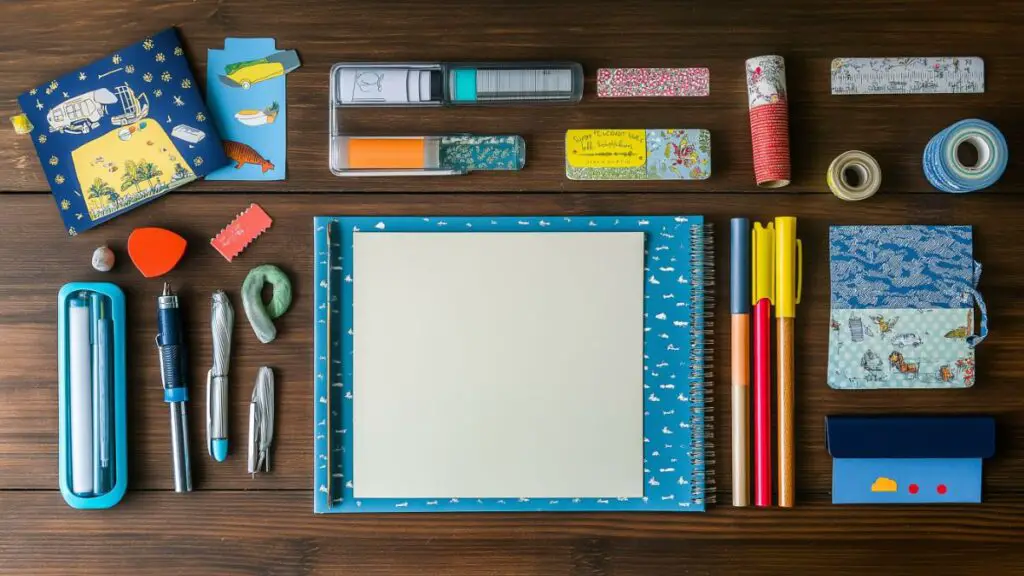Creative Travel Scrapbook Ideas: Capture and Preserve Your Adventures Beautifully
Table of Contents
Introduction
Every journey has a story—and scrapbooking lets you tell it with flair. In an age where travel photos are often lost in camera rolls or social feeds, creating a travel scrapbook offers a meaningful, hands-on way to preserve memories. Whether you’re a world explorer or a weekend wanderer, crafting a visual diary of your trips allows you to reflect, relive, and share your experiences in a truly personal way.
According to a 2024 survey by Statista, 56% of travelers keep souvenirs or journals as a memory-keeping habit. Scrapbooks take this one step further, blending photos, ticket stubs, and handwritten notes into a tactile keepsake. They’re not just creative projects—they’re timeless treasures.
In this guide, we’ll walk you through inspiring travel scrapbook ideas, tools you’ll need, layout suggestions, and memory-keeping techniques. Whether you’re a crafting pro or a beginner with a box of boarding passes, this post will help you capture your adventures—creatively and beautifully.
In-Depth Outline
1. Essential Supplies for a Travel Scrapbook
- Must-have tools: scrapbook albums, glue, pens, paper.
- Digital vs. physical scrapbooks: pros and cons.
- Where to find travel-themed stickers, washi tape, stamps.
- Portable tools for scrapbooking on the go.
- Photo printing tips for high-quality results.
Table: Physical vs. Digital Scrapbooks
| Feature | Physical Scrapbook | Digital Scrapbook |
| Tangibility | Yes | No |
| Portability | Bulky | Easy to share |
| Customization | Highly tactile | Unlimited digital assets |
| Long-Term Storage | Prone to wear | Easy backups |
2. Creative Layout Ideas for Travel Memories
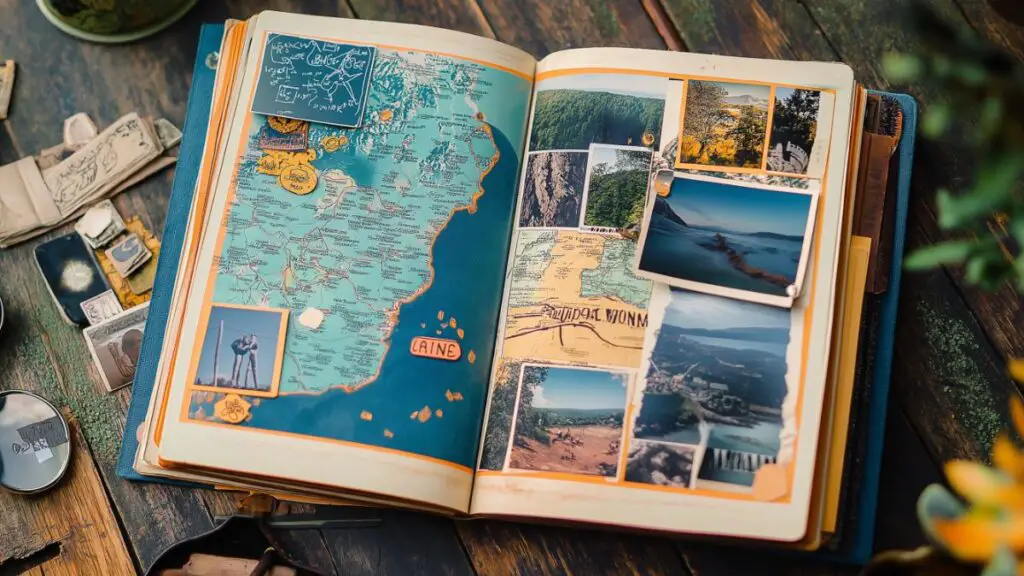
- Day-by-day trip pages or location-themed spreads.
- Maps with highlighted routes.
- Photo collages with captions and anecdotes.
- Split layouts: one side photos, one side journaling.
- Include QR codes linking to videos or digital albums.
Table: Layout Styles by Scrapbook Type
| Layout Style | Best For | Visual Balance |
| Grid Collage | Photo-heavy memories | High |
| Timeline Spread | Chronological trips | Medium |
| Mixed Media Page | Souvenirs, textures, and photos | Creative |
3. Souvenirs to Include Beyond Photos
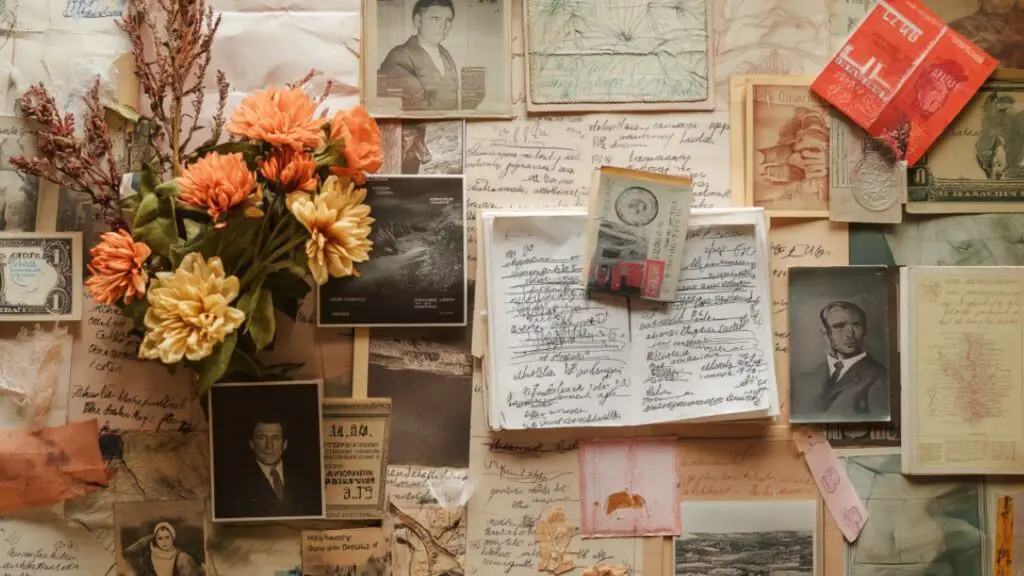
- Ticket stubs, maps, receipts, and postcards.
- Dried flowers or sand (with packaging tips).
- Foreign currency, hotel key cards, museum passes.
- Local newspaper clippings or restaurant menus.
- Sketches or doodles inspired by your trip.
4. Journaling Prompts to Tell the Story
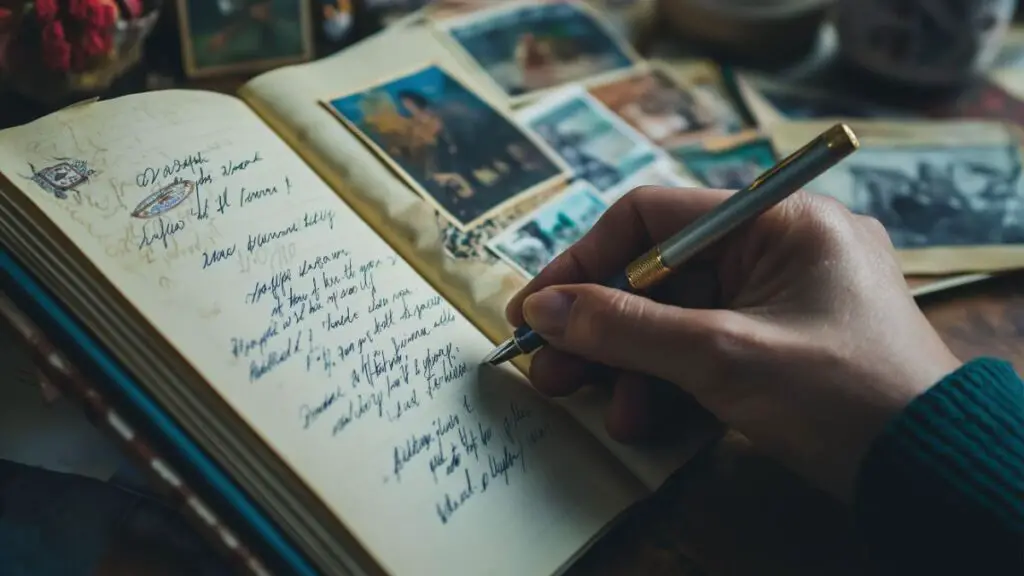
- What surprised you most about this place?
- Describe your favorite meal in detail.
- Capture a funny or unexpected moment.
- Reflect on how the trip changed you.
- Highlight cultural experiences or local interactions.
Table: Journaling Prompts by Travel Type
| Travel Type | Prompt Example |
| Solo Travel | “What did I learn about myself on this trip?” |
| Group Travel | “What made us laugh the hardest?” |
| Cultural Travel | “What tradition fascinated me most?” |
5. Using Technology to Enhance Scrapbooks
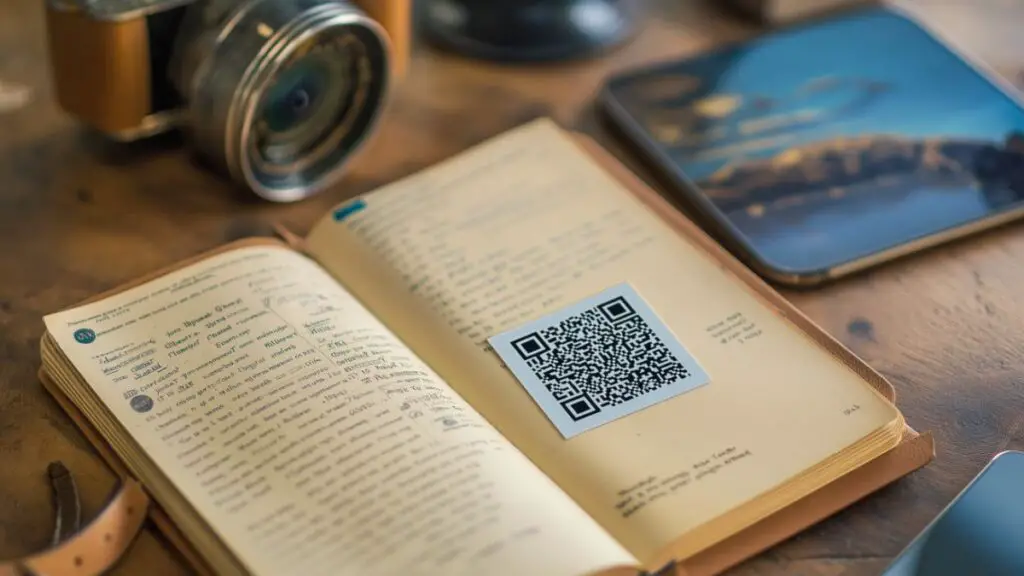
- Add QR codes that link to travel videos or Google Maps pins.
- Use apps like Canva, Project Life, or GoodNotes for hybrid pages.
- Print Polaroid-style photos with portable printers (e.g., HP Sprocket).
- Digitize physical pages for sharing on Instagram or blogs.
6. Travel-Themed Scrapbook Themes

- “Wanderlust Adventures”: mix of global travels.
- “My Favorite City”: dedicated to one place with deep detail.
- “Nature Escapes”: focus on hikes, parks, and outdoor journeys.
- “Food Around the World”: recipes, menus, and dining snapshots.
- “52 Weekends Away”: local trips, staycations, mini-breaks.
7. Tips for Scrapbooking While Traveling
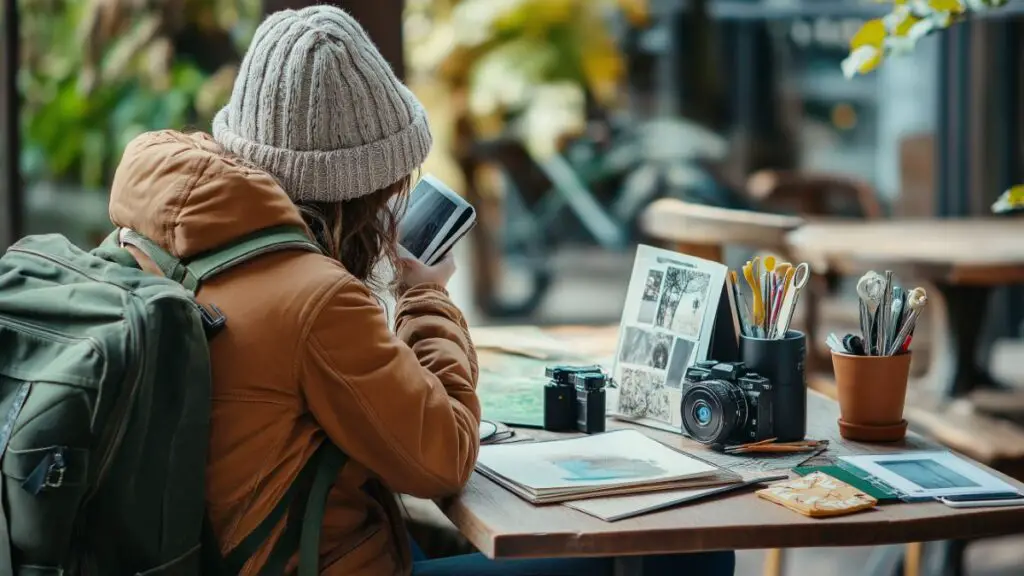
- Keep a travel journal or notes app daily for future reference.
- Use Ziploc bags or envelopes to collect souvenirs per location.
- Create “on-the-go” pages with mini glue sticks and washi tape.
- Back up your photos each night to cloud storage.
- Set aside 15–30 minutes a day for reflection or layout sketches.
8. Preserving and Sharing Your Scrapbook

- Use acid-free paper and archival glue to prevent fading.
- Store away from heat, sunlight, and moisture.
- Create digital scans to archive or share your scrapbook.
- Make copies or photo books for friends or travel companions.
- Use display frames for favorite pages or spreads.
Detailed Content Expansion
1. Essential Supplies for a Travel Scrapbook
A well-prepared scrapbook starts with having the right tools. Whether you’re building a detailed, tactile album or crafting a sleek digital memory book, your supplies lay the foundation for creativity.
Must-Have Physical Tools:
- Scrapbook Album: Choose between ring-bound albums (great for flexibility) or pre-bound books. Look for acid-free paper to preserve photos.
- Adhesives: Use double-sided tape or photo-safe glue sticks. Avoid liquid glues that wrinkle paper.
- Pens & Markers: Go for archival-quality ink in a mix of colors. Gel pens and brush markers can add flair.
- Decorative Add-ons: Stickers, washi tape, rubber stamps, stencils, and die cuts can add personality.
- Cutting Tools: Small scissors and paper trimmers help create clean edges.
Digital Options: If physical scrapbooking feels too bulky, apps like Canva, GoodNotes, or Project Life offer drag-and-drop layouts and cloud storage. They’re ideal for digital nomads or those short on space.
Travel-Friendly Kit: Pack a small pouch with essentials: glue dots, mini scissors (TSA-safe), washi tape, and a pen. Add envelopes for collecting receipts, maps, or postcards along the way.
Comparison Table: Physical vs. Digital Scrapbooks
| Feature | Physical Scrapbook | Digital Scrapbook |
| Customization | Hand-crafted, tactile | Templates, scalable |
| Portability | Heavier to carry | Accessible anywhere |
| Printing Required? | Yes, for photos and décor | No (can export PDFs or images) |
| Skill Level | Beginner to expert | Beginner-friendly with tools |
Pro Tip: Mix both styles—create physical pages, then scan them to preserve or share online.
2. Creative Layout Ideas for Travel Memories
A good scrapbook layout balances visual appeal with the ability to tell a compelling story. The key is to create pages that guide the viewer through your experience—without feeling cluttered or repetitive.
Popular Layout Styles:
- Day-by-Day Layouts: Perfect for short trips. Each page documents a day, complete with photos, journaling, and small keepsakes.
- Location-Based Spreads: Organize your scrapbook by country, city, or region. Use maps and local icons to differentiate each section.
- Thematic Pages: Focus on themes like “food,” “nature,” or “people met.” It breaks monotony and gives creative freedom.
Design Tips:
- Stick to a color palette that complements your destination (e.g., earthy tones for safaris, pastels for beach trips).
- Use grids to organize multiple photos cleanly.
- Add small envelopes or flip-up elements for interactive surprises.
Innovative Additions:
- Include a QR code linking to a YouTube video or blog post.
- Create a pocket page for loose items like coins or polaroids.
- Use translucent overlays for added depth and texture.
Layout Ideas Table:
| Layout Style | Best For | Visual Impact |
| Timeline Spread | Long trips, road trips | Structured |
| Grid Collage | Photo-dense experiences | Balanced |
| Storybook Format | Detailed storytelling | Immersive |
| Minimalist Layout | Elegant, modern destinations | Clean |
Pro Tip: Don’t aim for perfection—let your scrapbook reflect the spontaneity of travel. Handwriting, uneven borders, or smudges only add to the charm.
Conclusion
Scrapbooking is more than just a craft—it’s a way to relive your adventures long after the plane lands. By combining personal touches, visual creativity, and tangible memories, you create a keepsake that captures the heart of your journey. Whether you’re traveling solo or with loved ones, a scrapbook becomes a time capsule of stories, emotions, and snapshots that digital albums alone can’t replicate. With the right tools, a little planning, and plenty of inspiration, your next trip can live on page by page.


